Perceptions of the Police
Majorities of Black (66 percent), Latino (78 percent), and white (84 percent) Southerners have favorable views of the police in their community.
Perceptions of the police change significantly among Black adults when respondents are asked their favorability toward “police in the United States.” Favorability drops to 40 percent among Black Southerners and has modest shifts among Latino Southerners (64 percent favorable) and white southerners (75 percent favorable).
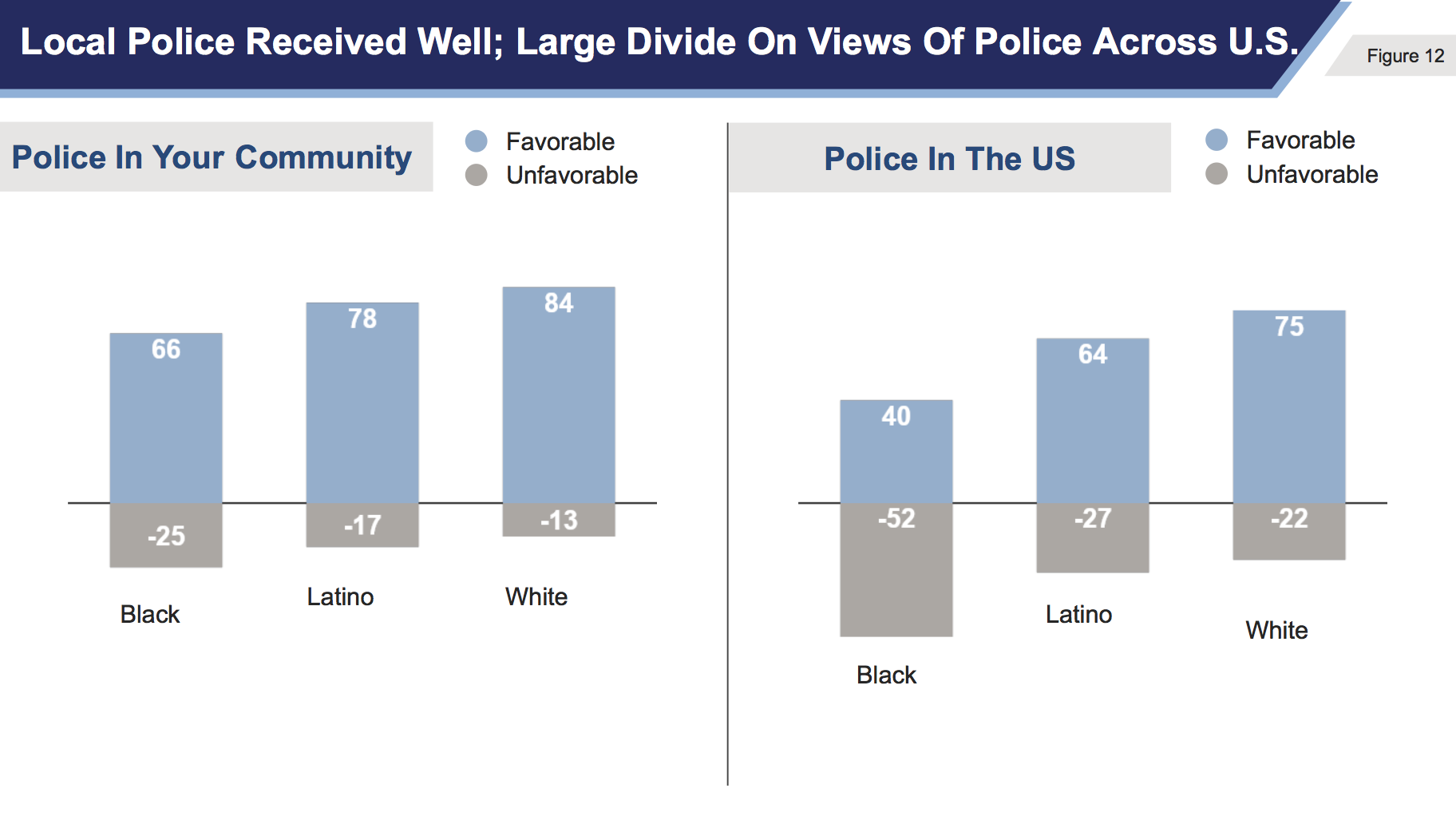
Southerners of different races note major different personal experiences in encounters with the police in the United States. Unlike white (14 percent) and Latino (37 percent) Southerners, Black Southerners (71 percent) express deep concerns about whether a family member or themselves will be a victim of police brutality.
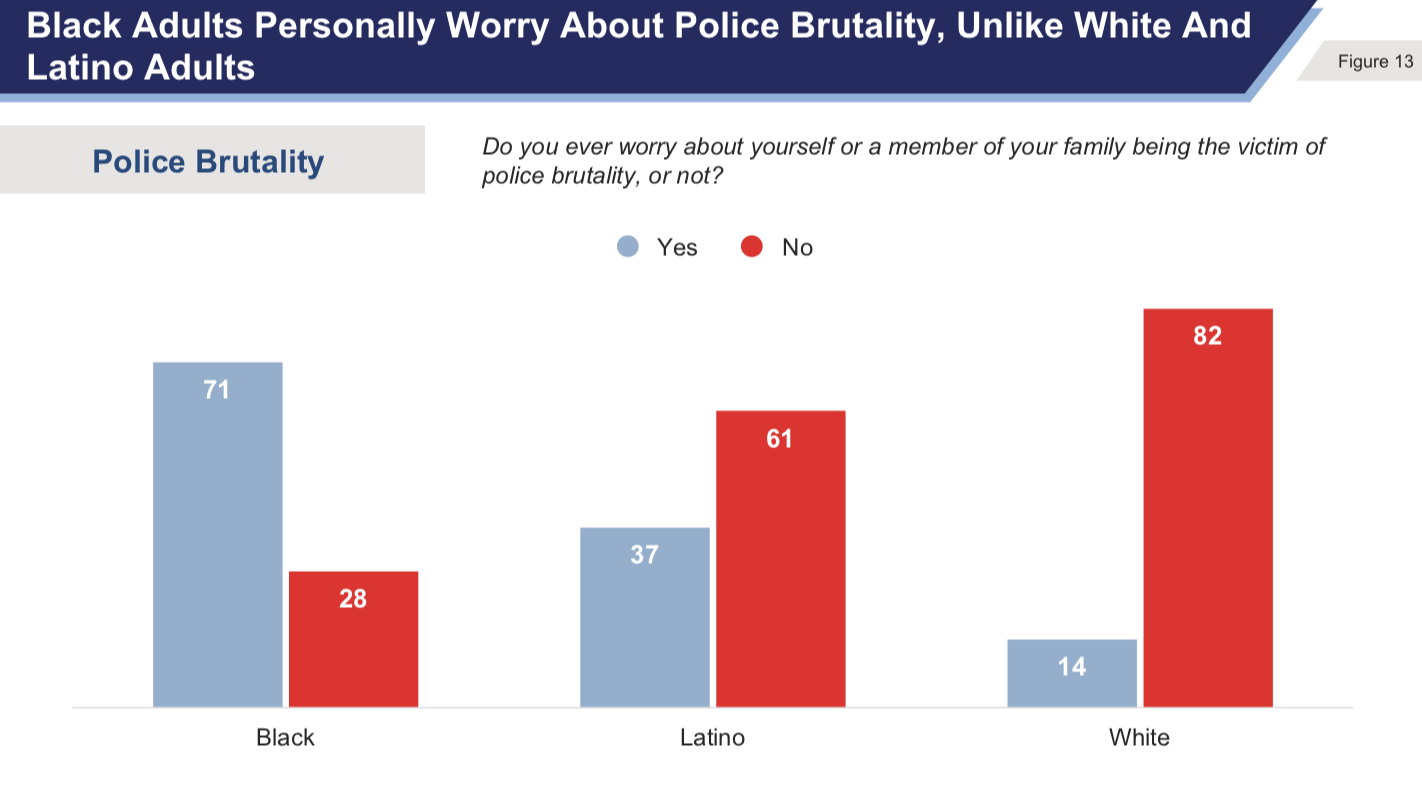
The Derek Chauvin Verdict
An overwhelming majority of Black, Latino, and white Southerners agree with the jury’s verdict that found Derek Chauvin guilty of murdering George Floyd. Black (91 percent) and Latino (80 percent) adults overwhelmingly agree with the verdict, and a large majority of white adults (66 percent) agree as well. Younger white adults (74 percent) are much more likely than older white adults (58 percent) to agree with the verdict.
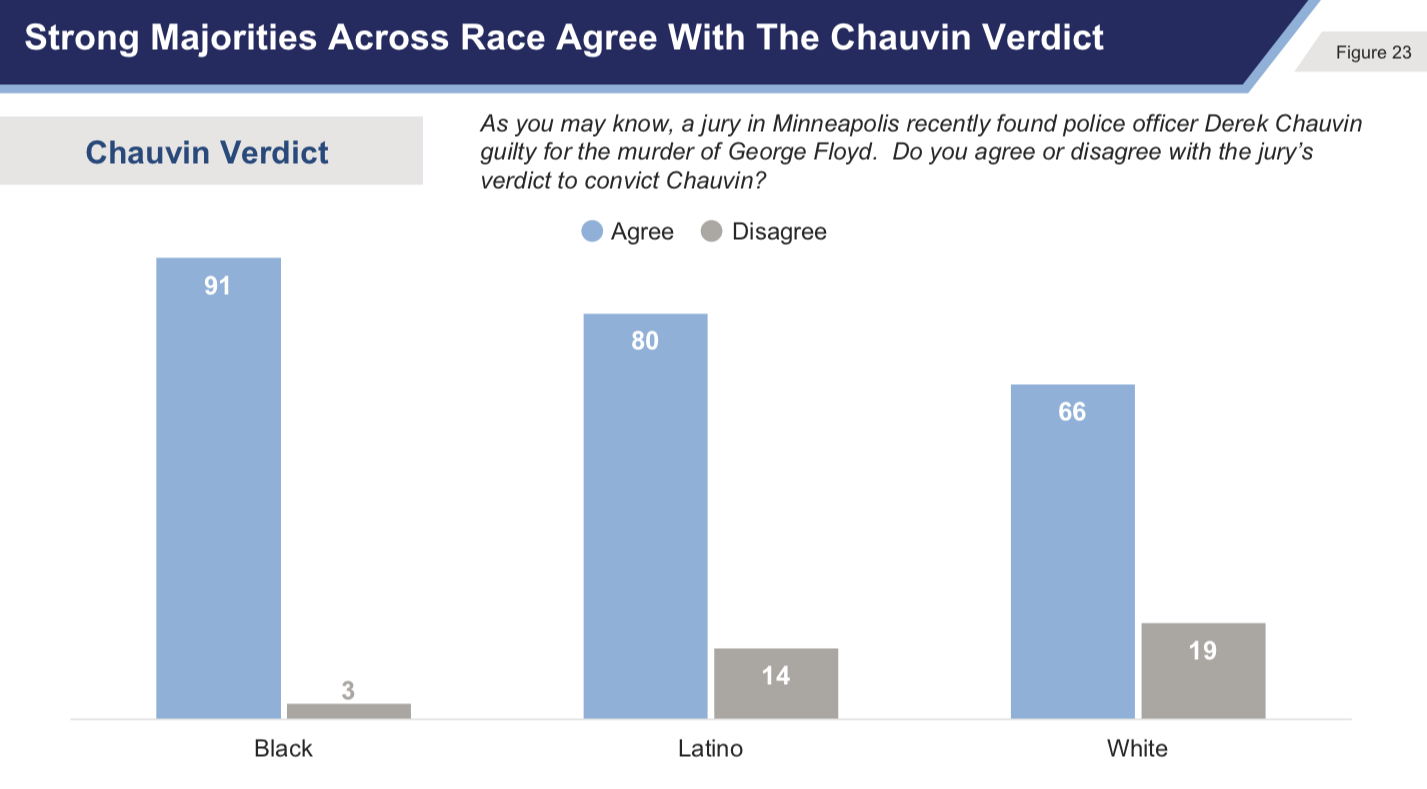
Still, white and Latino adults share similar views on whether the Chauvin verdict is a step in the right direction that will impact how police conduct themselves (60 percent of whites; 62 percent of Latinos) instead of not having any impact (29 percent of whites; 32 percent of Latinos). Black adults are not as optimistic about the impact of the verdict (53 percent step in the right direction/42 percent will not have any impact).

Most people, across race, do not think lawmakers have done enough to address the killing of unarmed Black people and other people of color by police officers.
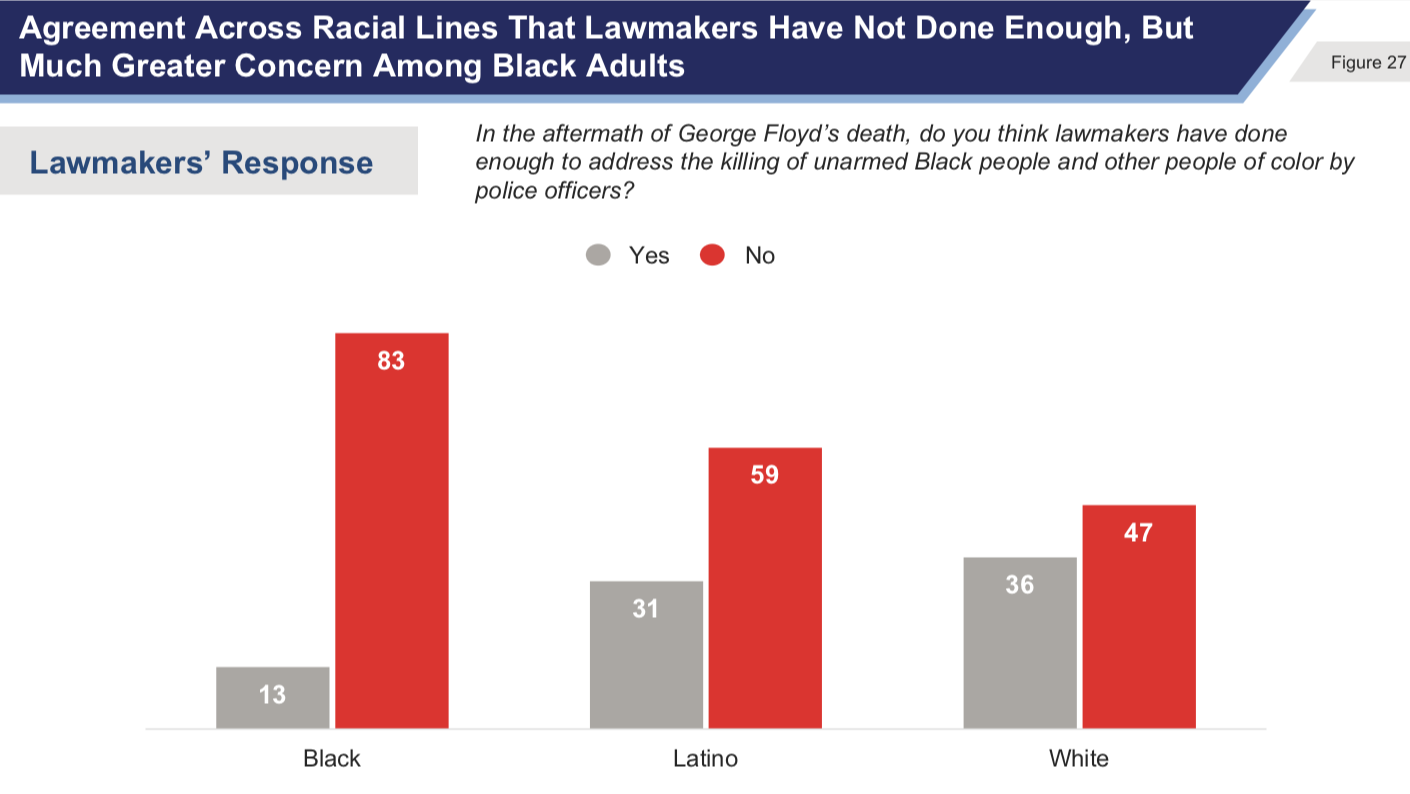
Systemic Racism & Policing
Divergent attitudes and perceptions, not surprisingly, begin with the different personal experiences that individuals have encountered or expect to encounter with the police in the United States. Unlike white (14 percent) and Latino (37 percent) Southerners, Black Southerners (71 percent) express deep concerns about whether a family member or themselves will be a victim of police brutality.
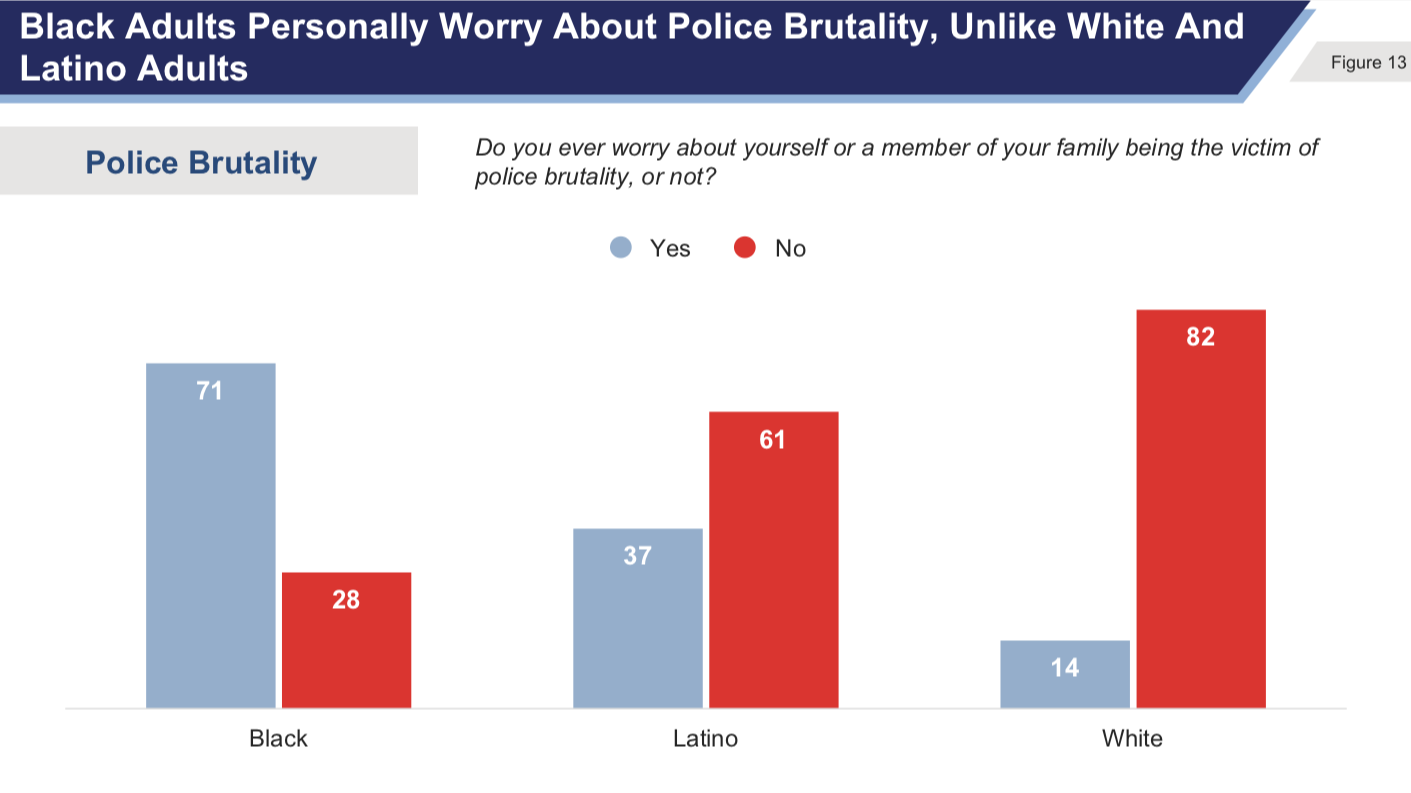
Unlike white (14 percent) and Latino (37 percent) Southerners, Black Southerners (71 percent) express deep concerns about whether a family member or themselves will be a victim of police brutality. Black Southerners express concerns over systemic racism on a variety of measures, while white Southerners do not. Latino attitudes about systemic racism are in the middle, but often lean closer to white attitudes.
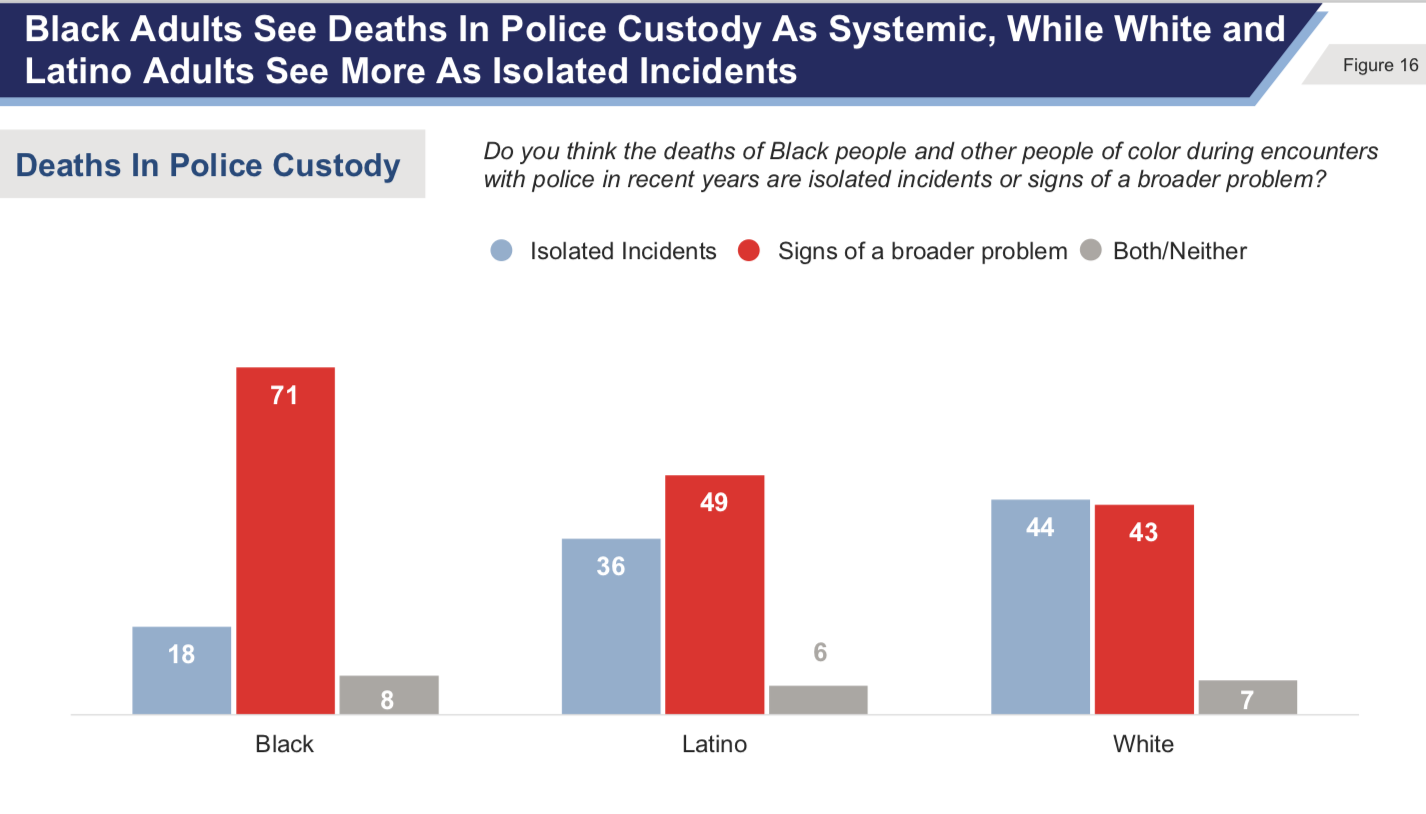
White Southerners divide evenly on whether the deaths of Black people and other people of color during encounters with police are signs of a broader problem (43 percent) or isolated incidents (44 percent). A plurality of Latinos (49 percent) think these deaths are signs of a broader problem instead of being isolated incidents (36 percent). A large majority of Black Southerners (71 percent) think the deaths are signs of a broader problem, not isolated incidents (18 percent).
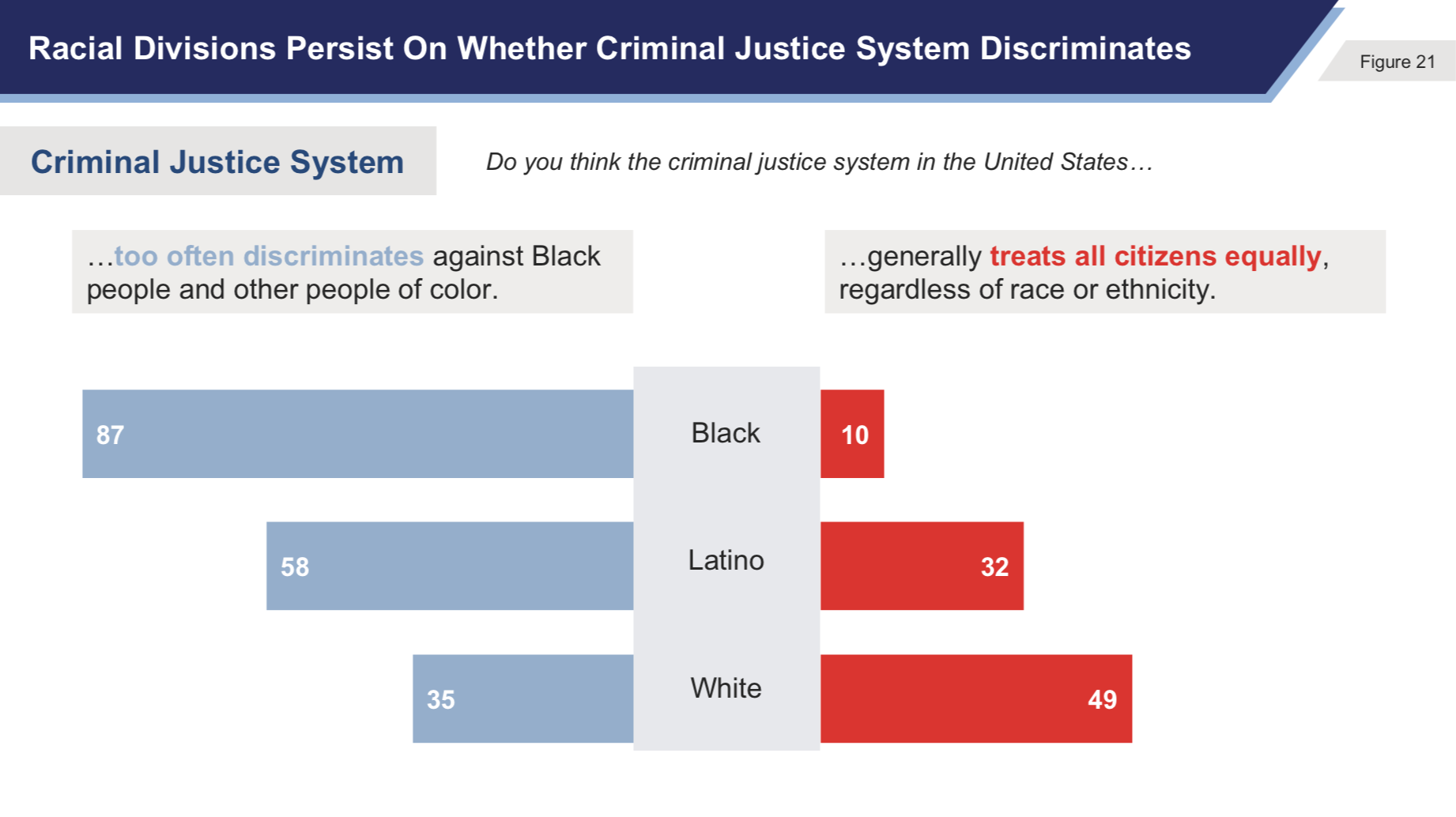
Similarly, 87 percent of Black Southerners think the criminal justice system discriminates against Black people and other people of color, compared to 58 percent of Latinos and 35 percent of whites.
The Pathway Forward
Despite the different views among Black, Latino, and white Southerners on issues related to policing and systemic racism, there is a great deal of common ground on a range of policy proposals to reform policing and the criminal justice system. The common ground we found on policy proposals to reform policing distinguishes itself from the differing views about the pervasiveness of systemic racism. The strongest reforms center on addressing the use of force, holding police accountable, and increasing the funding and training hours for police officers. These policies receive strong support across race.

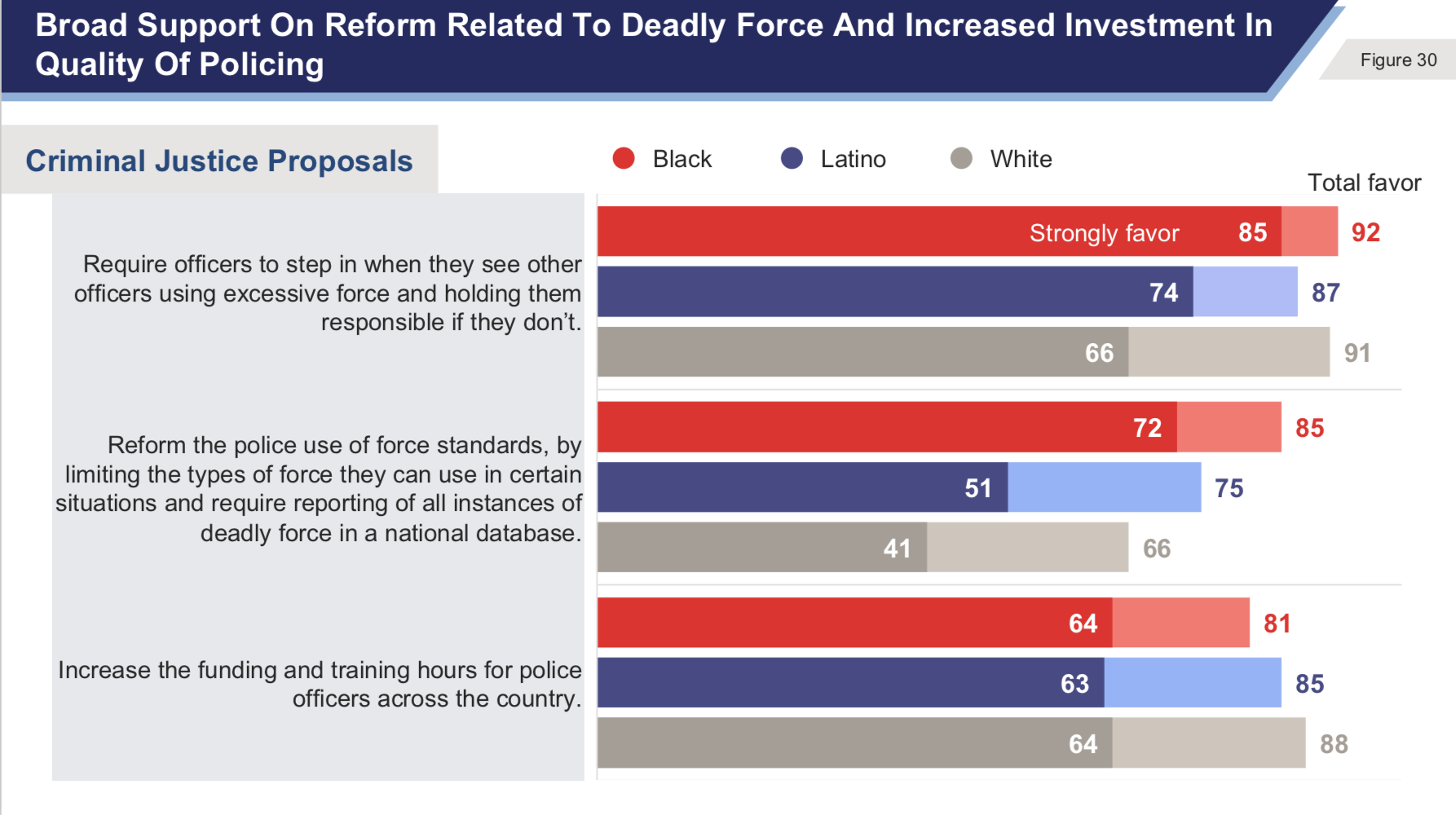
There is broad support across race for requiring officers to step in when other officers are using excessive force (91% white, 92% Black and 87% Latino respondents). This level of support is largely consistent if not increased compared with October 2020 responses. It was the most popular proposal tested.

Among the most debated topics on police reform in Congress right now, the public supports ending immunity for police officers and prosecuting them civilly if they break the law, including 69 percent of white, 81 percent of Black and 73 percent of Latino Southerners. There is also broad support, regardless of race, for requiring police departments or police officers to carry liability insurance that other professions like teachers and social workers have, so taxpayers do not have to pay for expensive settlements when found guilty of misconduct. This measure was supported by 69 percent of white, 81 percent of Black and 71 percent of Latino respondents.

